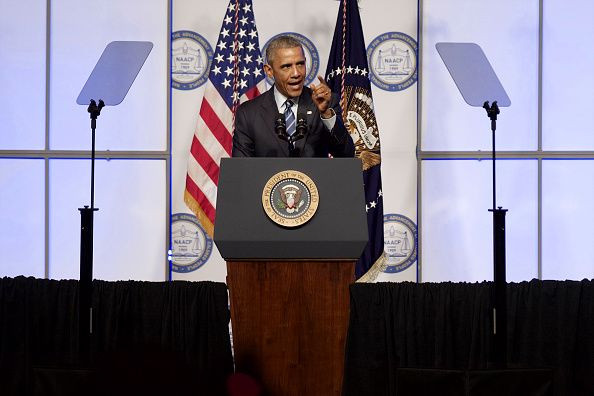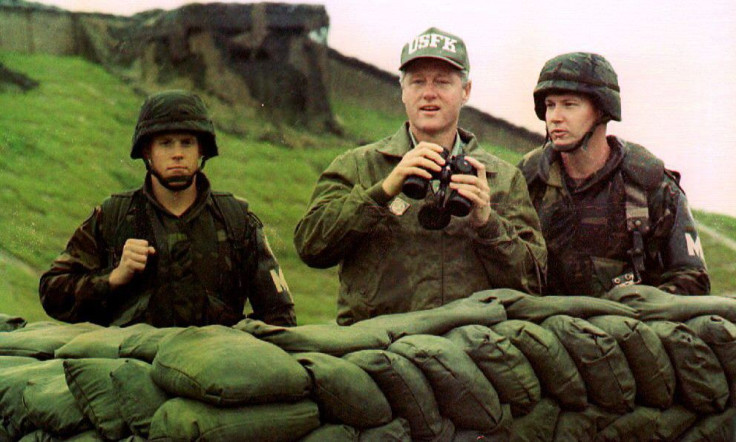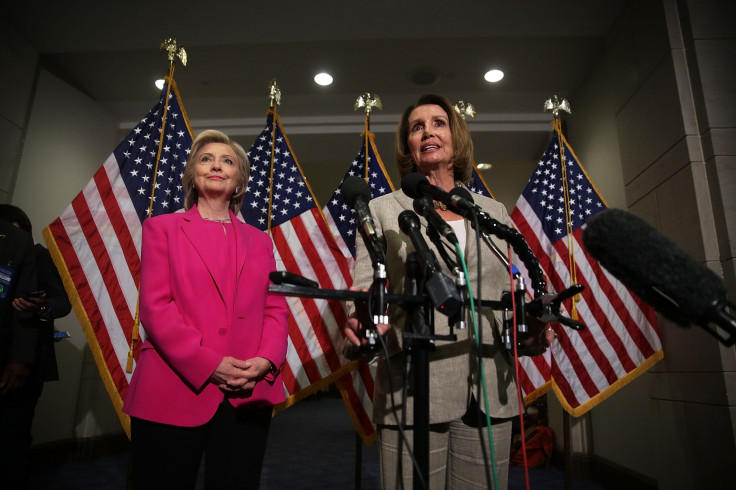Failed North Korea Deal Offers Obama Lessons On Iran Agreement

WASHINGTON -- The biggest challenge to President Barack Obama’s landmark deal with Iran to curb their nuclear development won’t be Congress. It will be the 2016 election. And if history is an indicator, he has a lot of reasons to be worried.
The development, design and response to Obama’s deal with Iran bears a striking resemblance to the agreement former President Bill Clinton signed with North Korea in 1994, known as the “Agreed Framework.” And after former President George W. Bush took over the White House, it slowly unraveled.
Like the deal Obama has struck with Iran, the 1994 agreement was structured not as a treaty -- which requires Congressional approval and has more staying power -- but as an “executive agreement,” which doesn’t require approval and can easily be reversed by the next president.
Neither the North Korea agreement nor the Iran deal force the country to completely end development of nuclear technology. The North Korea deal required the nation to shut down a plant that was being used to enrich plutonium that appeared to have no ability to be used as a power production facility. And the North Koreans would submit to international monitors. In exchange, the United States would provide fuel for energy needs.

The Clinton deal quickly came under fire from Republicans. The GOP had captured control of Congress and held a series of scathing committee hearings.
“The criticisms were of the following kinds: first that we had submitted to blackmail,” Robert Gallucci, who was the chief negotiator of the deal, later described to PBS’s Frontline. “The North Koreans were threatening us with a nuclear program, and we gave in and gave them good things. That we were appeasers. That this was a rogue regime. Had we learned nothing about the failures of appeasement to deal with regimes such as this? We also heard that the North Koreans wouldn't stick with the deal; they'd cheat. And didn't we know that they were the kind of folks who would cheat?”
Clinton was able to hold onto the agreement until he left office in 2001. Despite Republican efforts, for four years the North Koreans submitted to inspectors -- at least in some locations -- and the United States provided fuel.
But after Bush took office, the deal began to crumble. The Bush administration argued that intelligence reports revealed the North Koreans were continuing to enrich plutonium at another site that monitors didn’t have access to.
The whole deal was clearly coming apart after the Sept. 11 attacks. In his State of the Union address, Bush included North Korea along with Iran and Iraq in the so-called “Axis of Evil.” Over the next year, the administration became more critical of North Korea. The breaking point came in October 2002, when North Korean officials admitted to visiting U.S. diplomat James Kelly that the country was enriching uranium for nuclear weapons in direct violation of the agreement. By November, the U.S. had stopped sending oil, and in December North Korea restarted the shuttered power plant. The inspectors were kicked out on December 31.
Asked if the Bush administration had "moved the goal posts" from the original deal with North Korea, Republican defense policy strategist Richard Perle replied, “Well, I would hope that we would move the goal posts because we didn't like the playing field that was established during the Clinton administration. It was a playing field on which we were expected to pay the North Koreans not to do dangerous things, and that is not a sound basis for a policy,” he told PBS’s Frontline. “When Bush won the presidency, talks [with North Korea] ceased immediately.”
A Republican winning the White House will likely spell trouble for Obama's deal.
Republican presidential candidates scurried to denounce the deal. "We need to terminate the bad deal with Iran on day one, put in place crippling economic sanctions and convince our allies to do the same,” Scott Walker said in his campaign announcement -- a day before the deal was even announced.
“This is a staggeringly bad deal. It is a fundamental betrayal of the security of the United States and of our closest allies, first and foremost Israel,” said Sen. Ted Cruz, R-Texas) in a statement released by his 2016 campaign.
Jeb Bush also bashed the deal. “The nuclear agreement announced by the Obama Administration today is a dangerous, deeply flawed, and short-sighted deal,” Jeb Bush said. “The people of Iran, the region, Israel, America, and the world deserve better than a deal that consolidates the grip on power of the violent revolutionary clerics who rule Tehran with an iron fist. This isn’t diplomacy – it is appeasement.”
The criticism was nearly identical to what Republicans said in 1994.

There are some differences that could offer him hope. Bush didn’t kill the North Korean deal right away, so there may be a window to allow it to take root. And the Iran agreement includes leading European nations, which increases its clout.
But the deal's best hope is a Hillary Clinton win. Meeting with House Democrats on Tuesday, she said, "I think we have to look at this seriously, evaluate it carefully, but I believe based on what I know now, this is an important step."
"She endorsed it full-throated," said Virginia Rep. Gerald Connolly, D-Va. "She was not equivocal at all in her support of the agreement as she understands it."
© Copyright IBTimes 2024. All rights reserved.






















